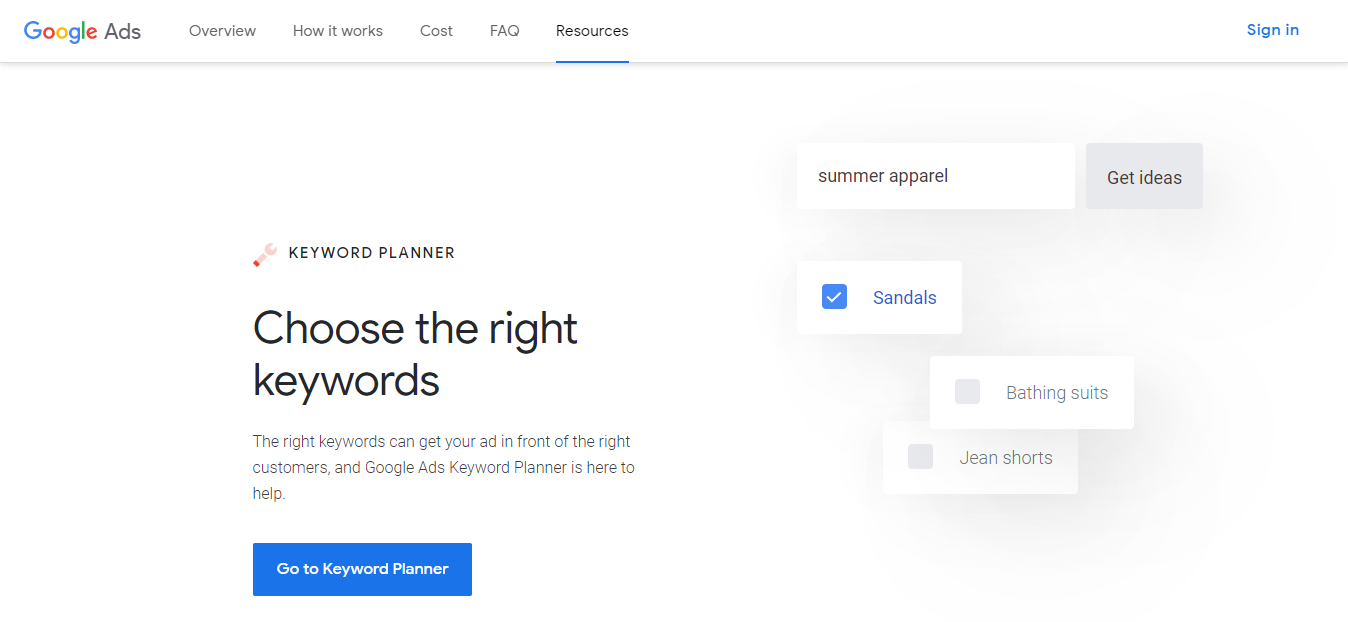Running an online business may sound a very complicated thing to anyone. People might think of it as a magnanimous task where a big team must be needed to handle tons of tasks. While for some educational institutes it might be true, but this is not the ONLY way an online platform has to work. You can build your own eLearning business quite easily if you know the right way of doing things. That’s why we have accumulated a list containing 7 things to consider before developing your online course. These things will help you break down the entire process of building an online education system into bite-sized tasks so that you may take necessary actions to complete each task and make everything ready. So here goes the list:
1. Decide on what to teach

Probably the most essential question to ask yourself before launching an eLearning business is “What should I teach?” The answer might come from either of the two sources.
a) What am I really good at?
The first thing that comes to everyone’s mind is that (s)he should choose a topic, subject, or category in which (s)he has enough expertise and experience. And that’s a legitimate option. You need to have a considerable amount of experience as well as expertise in a subject matter to teach about that. But there’s a problem with always following your experience. Because people might not be that much interested in learning the subject. For example, You may be a pro at gaming, but creating a course on that has less possibility of being taken. Because the gaming community is more self-taught than taking a course on how to play a game. That points to the second source.
b) What I’d love to learn myself?
This might sound a bit strange to you but the fact is, you can decide to teach something that you yourself would love to learn. Let’s say you know baking by heart but are still weak on the other dishes. In this case you can launch a comprehensive course on cooking, combining both the baking and the cooking. The idea is, by the time you are teaching your students how to bake a croissant, you can learn how to cook a roasted duck yourself and then teach your students. This approach has an added advantage as you can teach yourself too while teaching the others.
2. Set a target audience

It’s easy to say that you can target the whole world for your eLearning business but it would not be a pragmatic thought. Because in the real world everything is not universal. For example, you can’t develop a course on Lacrosse and expect the whole world to jump right into the course. Because Lacrosse is only played in North America and people from other continents don’t have much interest in it. So specifying the group of people for whom you will develop your eLearning course is very important. The segmentation process of your target audience may depend upon geography, demography, or any other common trait that people share mutually. Setting a target audience will help you craft a better course module for your online courses.
3. Identify the demand

This is the next most important factor on our list of ‘7 things to consider before developing your online course’. You can create an awesome course at any time. But if there’s no demand for that course, it won’t get sold. So knowing about the market demand is absolutely necessary for the salability of your courses. You can do it in various ways depending on your skills and budget.
@ Analyze your competitors

This should be the first source to look for on your list. Competitors play a huge role in shaping your own online education business. Having a close look at what they are offering and how their courses are performing will give you good insight about people’s perceptions. So you can develop a course keeping those factors in mind. You may even drop the idea of developing a particular course if you see that there’s a huge competition in it. Because while having some competition is good for your courses, having too much results in the rejection of it. So just go through your competitors on Udemy, LinkedIn Learning, Coursera, EdX, and other such platforms to know what’s in demand.
@ Keyword analysis

The Keyword Analysis tool from Google can tell you what people are searching for in general or in a specific niche. And the rule of thumb is, go for creating courses on subjects that people mostly search for. Because their search indicates their intention of knowing about the subject more.
@ Ask the audience
This might prove a very handy option if you already have a couple hundred followers on social media platforms or a few dozens of email subscribers, or a sizable reader base. Ask your followers or readers what they think about launching a particular course. Make it like a poll. Provide three or four topics that you are planning for a course and ask their opinion about which one would be the best according to them. A public poll among your interest group is the best option to know if a particular course will or won’t perform well.
4. Fix your goal
Different people may have different reasons for developing an online course. Some may be doing it for the money. While some others may plan to use it for a strong social media presence or branding purposes only. Deciding your goal has a deep impact on your business. If you are into it for money, you need to develop courses with premium features that deliver as much value to your students as possible. Because only then people would be willing to buy your courses.
But if you are doing it to let people know of your name, you might offer the courses for free. You wouldn’t mind doing it as long as people are knowing about you. So your goal defines your strategy. Only you can decide what will work the best for you.
5. Choose your lesson types
Next on our list of ‘7 things to consider before developing your online course’ is the type in which you want to offer your lessons. Generally there are three options for preparing a lesson.
[+] Text only

Text-based lessons are particularly helpful if your target audience has less time to spare for a full-fledged eLearning course. The advantages of these lessons are that people can choose to download it when they are in a hurry for studying later. It is easy to develop and gives you more time to spend in promotions of your courses. However, there are other concerns related to it. You might not be able to explain everything via only written content. Moreover, these can be copied and used elsewhere with no copyright.
[+] Audio-visual only

Video lessons are currently dominating the eLearning industry and for a good reason. With a recorded video, you can show anything step-by-step and explain as they play along. Because of its usefulness and aesthetics, video courses are being widely accepted by everyone. And with the rise of podcasts, a simple audio lesson has become popular too.
You should also keep in mind that developing such lessons require more time and money as you might need to purchase a video editing software.
[+] Mixed
The best way to develop your course is to blend these two types of lessons. A mixed approach will add everything your students might love while taking less time and money for you to develop it.
6. Select the distribution channel
When the course is created, you want your prospective students to get it easily. For that, you have to choose the right distribution channel that might give you maximum exposure. Depending on the nature of your course, you may choose either of the following channels.
For free courses:
- Social Media – You can create a private or secret group with your students on Facebook and share the lessons via that group.

- Email – You may send lessons as newsletters directly to your students’ email inboxes.
For paid courses:
- Course selling platforms – Selling your courses on different course-selling platforms may prove profitable to you as these platforms have all the tools you need to run a successful eLearning business. However, you may not have complete freedom while using these platforms as they all have their own set of regulations.
- Your own eLearning website – This is by far the best option to run an online education business. Having a personal eLearning website gives you the power and agility to operate the business just as you want. Now some may say you that it’s pretty expensive but don’t pay heed to them at all. There are a couple of good WordPress LMS plugins like Dozent LMS with which you can create your own full-fledged eLearning website absolutely free.

7. Establish a timeline and evaluate success
Developing an online course and getting students to enroll in it is a mammoth task. One could easily get carried away with all the workload if (s)he doesn’t set a timeline. So divide the whole task into small, actionable tasks and set a deadline for each step. That way you can check back whether you’re going at the right pace or should you calibrate your speed.

Another important factor for an eLearning business, or any business for that matter, is the evaluation of success or failure. The parameters must be set by you only because no one else can tell you whether a course is a big hit or a complete flop. You may set the parameters as the amount of dollars earned, the total number of subscribers, or the number of students willing to take your course. Whatever the standards are, do check at a regular interval how your course is performing.
With this, we have come to end of our list of 7 things to consider before developing your online course. Now let’s have a look at how Dozent LMS can help you build a comprehensive eLearning website.
How Dozent LMS can help you in the process?

Like we have said earlier, the best way to sell your online courses is to have your own eLearning website. You can build it easily with Dozent LMS. The online LMS plugin has the power to create a comprehensive online learning management system which you can use to sell your courses without any hassle. It has a versatile course builder and a dynamic certificate builder so you can create unlimited courses and offer professional certificates for each of your courses. And on top of everything else, you don’t need to SPEND ANYTHING to use this eLearning LMS plugin. In short, it gives you the power to build your eLearning website with full control and for free.
Wrapping Up
Selling online courses is a great way to generate revenue at present. If you can perform the entire task with well-laid plans, it will surely make you a guaranteed return. Not only that, you can also help thousands of others to achieve what they have been planning – a degree, a certification, a learning, or even a promotion. So create your own eLearning platform today and start contributing to society by sharing your knowledge and skills.
